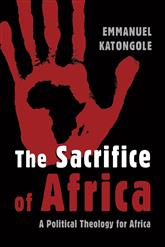Search for topics or resources
Enter your search below and hit enter or click the search icon.
March 5th, 2018 | 2 min read

I’d been wanting to read The Sacrifice of Africa by Emmanuel Katongole (a Ugandan theologian and priest) for a while and finally found one in Nairobi. I would heartily commend this book to anyone who is interested in African politics or religion, and I think that the introduction and Part I ought to be required reading for any Western missionary coming to serve in Africa. Katongole begins the book by asking why Christianity has spread so quickly throughout sub-Saharan Africa while war and poverty continue to march on relentlessly in the same places:
One assumption is that the task of ensuring peace, democracy, and development — in a word, the social and material conditions of life — properly belongs to the jurisdiction of politics. Christianity, which belongs to the realm of religion, can only make a helpful contribution to the field of politics. Closely connected to this understanding of the relation between religion and politics is the assumption that politics in Africa — particularly the institution of the nation-state — have not worked very well. Therefore, the most urgent task for Christian social ethics is to make politics work better, that is, become more democratic and transparent, the the expectation that properly functioning nation-state politics in Africa will ensure peace and stability and thus advance development.
Yet these recommendations do not pay sufficient attention to the possibility that politics in Africa, and the nation-state in particular, have not been a failure, but have worked very well. Chaos, war, and corruption are not indications of a failed institution; they are ingrained in the very imagination of how nation-state politics works. To put the argument differently, while Christian social ethics in Africa have focused on providing strategies for revising, improving, or managing a failing institution, they have paid very little attention to the story of this institution: how it works and why it works in the way it does.
Katongole argues that the “tribalism” (which is really clientelism) that is usually brought up to explain the problems Africa faces is a feature, not a bug of African politics and that the post-colonial nation-states have mostly inherited colonial systems of governance and tweaked them slightly for their own gain. Christians have generally allowed themselves to be constrained by a spiritual paradigm (“We just have to disciple people more and things will get better”), a development paradigm (“We just have to improve material conditions and things will get better”) or an advocacy paradigm (“We just have to use our voice in politics to advocate for the poor and things will get better”). Each of these things reflect aspects of the Church’s mission, but by failing to challenge the structures that really drive politics, the Church has failed to reshape the political imagination.
He explores this problem of an anemic political imagination in Part I of his book before exploring the some of the broader alternatives in Part II and then profiling three Africans who have worked to live out examples of peacemaking in Part III.
Matthew Loftus teaches and practices Family Medicine in Baltimore and East Africa. His work has been featured in Christianity Today, Comment, & First Things and he is a regular contributor for Christ and Pop Culture. You can learn more about his work and writing at www.MatthewAndMaggie.org